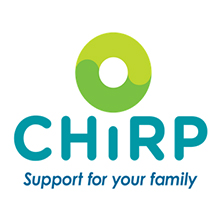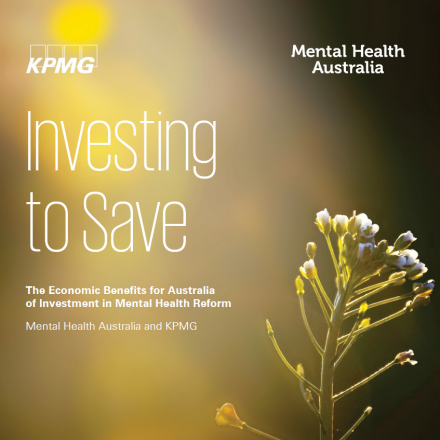The Child Illness and Resilience Program (CHiRP): Helping families cope with the challenges of childhood chronic illness
 Article by Child, Youth & Wellbeing Team, Hunter Institute of Mental Health
Article by Child, Youth & Wellbeing Team, Hunter Institute of Mental Health
Family life can be stressful at the best of times, but almost 15% of Australian families care for a child or young person living with chronic illness1. Research indicates that growing up with a chronic illness [1] can introduce extra stress, as well as potentially impacting on family resilience and the mental health and wellbeing of the whole family.
Children living with chronic illness often have to manage symptoms and ongoing treatments that affect their health and lifestyle. Children and young people with chronic illness are also more likely to develop social, behavioural or mental health problems such low self-esteem, poor social skills, challenging behaviour, drug or alcohol abuse, depression and anxiety [2].
Parents and siblings are also impacted with increased demands and challenges related to understanding, managing and coping with a diagnosed illness. These challenges can increase family members’ vulnerability to mental health problems.
Fortunately, despite the increased risk, some families are able to lighten the impact of childhood illness on their lives. Some families feel they grow from the experience, developing new skills and confidence so they achieve a relative sense of wellbeing. This ability to adjust in healthy ways to change by building on strengths and calling on available resources is referred to as family resilience. Resilient and well families can be healthier, feel happier and can do better at school, even during tough times. A resilient family can deal with challenges, bounce forward after difficult times and connect with others and reach out for help.
Supporting the resilience and psychological wellbeing of families living with a childhood chronic illness is therefore extremely important. In addition to the prevention of mental health issues, programs that support families’ mental health and wellbeing have been shown to contribute to improved medical outcomes for children and young people living with a chronic illness.
To contribute towards addressing the need to support and increase the capacity of families, the Hunter Institute of Mental Health with funding from the Greater Charitable Foundation, developed a family resilience initiative - the Child Illness and Resilience Program (CHiRP). CHiRP has been developed to help these families build resilience as a practical and positive way to improve their mental wellbeing. The program supports families to identify and build on existing strengths and resources that assist them to cope with the challenges of childhood illness. The CHiRP program promotes family resilience through the provision of a number of resources. Participating families are introduced to information and activities that help them learn coping strategies, ways to improve family functioning and identify sources of support.
In partnership with Kaleidoscope at the John Hunter Children’s Hospital in Newcastle NSW, HIMH is currently piloting the effectiveness of CHiRP. There are three steps in the program, depending on families’ circumstances. Step one provides a brief fact sheet to all parents whose child is discharged from the paediatric hospital. The fact sheet outlines simple strategies for improving family resilience and wellbeing. Step two provides an activity-based booklet to parents whose child attends selected outpatient clinics. Parents are encouraged to complete the activities with their family, which focus on helping them identify their strengths, skills and sources of support. Strategies that promote resilience related to problem solving, effective communication and self-care are also introduced. Step three offers an information support group to parents who are experiencing psychological distress and is delivered in a combined face-to-face and online format. The support group gives participants an opportunity to meet other parents in similar circumstances and practice the activities contained in the booklet.
CHiRP is an exciting initiative that supports the wellbeing of families living with childhood chronic illness. By focussing on resilience, families can call upon the strengths, skills and resources that have helped them through tough times before, and build on these to help them cope now and into the future. Currently CHiRP is provided to families when they have contact with the hospital. In the future, it is hoped the CHiRP resources can be available in hospitals nation-wide or distributed through other avenues such as schools and other community service providers. To find out more about CHiRP click here.
[1] Australian Institute of Health & Welfare 2012. A picture of Australia’s children 2012. Cat.no. PHE 167. Canberra: AIHW
[2] Sawyer, S., Drew, S & Duncan, R. 2007. Adolescents with chronic disease – the double whammy’. Australian Family Physician. 36(8), pp 622-627.
__________
Do you have a comment on this story? Join the conversation on Twitter @AUMentalHealth




